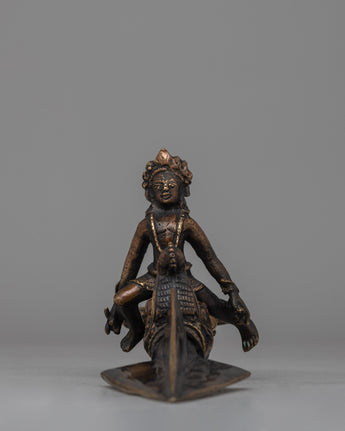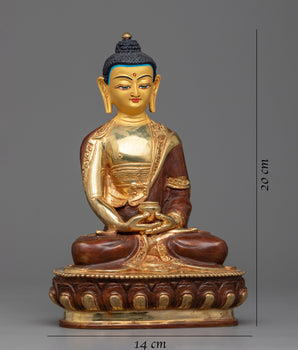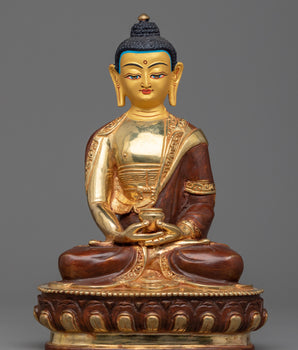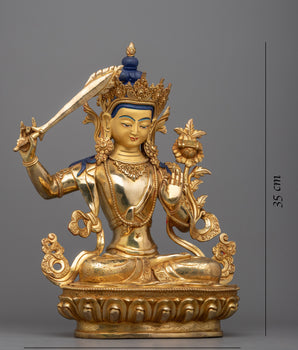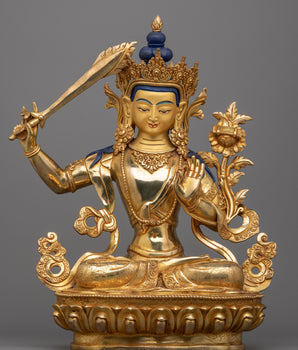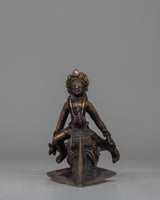
Exquisite Handcrafted Tibetan Brass Phurba Dagger | Perfect for Spiritual Practice

100% AUTHENTIC

HANDMADE

FREE SHIPPING
Authentic Tantric Ritual Tool for Spiritual Practices
About The Ritual Item :
This handcrafted Tibetan Brass Phurba Dagger represents a timeless emblem of power and spiritual protection. The Phurba, a ceremonial item used in Tantric Buddhist ceremonies to dispel bad energy and obstructions, is highly revered. Its design depicts the Vajrakila deity, which represents enlightenment penetrating through ignorance. This ceremonial dagger, measuring 11.5cm in height and 30cm in width, is a powerful addition to any meditation altar or sacred area.
This Phurba is made of high-quality brass metal and has an antique polish, which oozes beauty and authenticity. The delicate embellishments represent excellent workmanship influenced by centuries-old traditions, bringing the spiritual energy of the Himalayas to your practice. Whether used for meditation, rituals, or as a statement piece of Himalayan decor, this Phurba connects you to Vajrakila's almighty force, boosting your spiritual journey.
Introduction To The Phurba :
The ceremonial dagger (Sanskrit: Kila; Tibetan: phurba) is important for the expelling of evil and is thought to be especially effective in neutralizing the forces that obstruct Tantric Buddhist practice. It has ancient origins, first appearing in the Indian Rg Veda as the core blade of the vajra used by Indra to destroy the primordial cosmic snake Vritra. Kila, which means peg or stake in Sanskrit, was most likely associated with Vedic sacrifices. Meditation on the Vajrakila Tantra, an early Indian scripture first promoted in Tibet in the eighth century by Padmasambhava, one of the founding teachers of Tibetan Buddhism, is used to invoke the three-headed Vajrakila Buddha.
--------------------------------------------
Size: 11. 5cm(Height) x 30 cm(Width)
Weight: 0.95
Materials: Brass Alloy Body
--------------------------------------------
How to set up your own Buddhist Shrine?
Find a clean, quiet, and uncluttered spot
Set up an altar table, and cover it with an altar cloth that calls to you
Place your sacred item (statue, thangka, or a picture of Buddha) at the center
Shipping & Returns
We ship worldwide. Orders dispatch in 2–3 business days. International delivery typically arrives in 4–10 business days via DHL Express, depending on destination and carrier conditions. All items ship free globally.
Returns are accepted within 14 days of delivery. Products must be returned in original condition for a refund to be issued once received and inspected. Terms and conditions apply.


